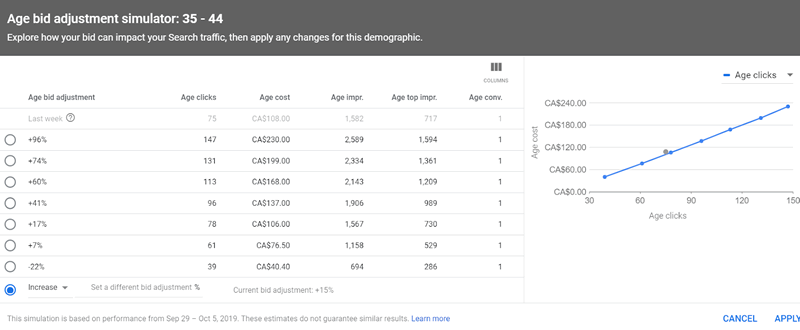
In the behavioral economics literature (for an approachable overview, see Daniel Kahneman, Thinking, Fast and Slow; also, Michael Lewis’ vivid biographical account of Daniel Kahneman’s and Amos Tversky’s lifelong intellectual relationship in The Undoing Project: A Friendship That Changed Our Minds), Nobel-winning economists fuse psychology and economics to suss out sources of cognitive bias. There are a number of human foibles that lurk within us, typically, that tend to warp reality in our minds, leading to irrational choices.
Among other things, this is a ground-up plea from interdisciplinary, empirical approaches to economic behavior, intended to reshape (and even discredit) the abstract foundations of the economics discipline. The modern discipline of economics, a descendant of early modern “methodological individualist” philosophers such as Thomas Hobbes, assumes there are perfectly rational actors incentivized to maximize “utility” (this nonexistent creature is sometimes referred to as “homo economicus“). You don’t have to be Karl Marx to see cracks in Adam Smith – you just have to people-watch. (Actually, Adam Smith wasn’t really ADAM SMITH, but I digress.)
Numerous tropes in the behavioral economics canon remain controversial. For example, much has been made of “myopic loss aversion” – the idea that investors feel much more pain from a small loss than they feel joy from an equivalent gain. A rational investor is supposed to roll the dice evenly and patiently, again and again, so that long-term gains may be realized. Fear (selling after a security declines in price, without being patient) cancels out long-term gains. Investors in winning stocks often sell “too soon.”
But in the real world, we may have better reasons to be risk-averse in games such as the stock market than armchair theorists realize. A very simple version of this would be the completely rational need to “preserve capital” rather than “build wealth” as we age. For younger people, the need to save hard-earned money to make a down payment on a home, make a mortgage payment on that home, or help with a child’s education, might be another quite rational reason to “irrationally” avoid bets that “should” pay off if repeated enough times.
Loss Aversion and PPC
Does myopic loss aversion affect PPC advertisers? Certainly. I’ve seen it do so. It’s primarily manifested in the “turn everything off in a panic” impulse (rather than simply paying less for each interaction, on average) displayed by some wobbly-kneed PPC advertisers. (Some people will mindlessly spend on handbags, new garden tractors, and jet skis, over in the “personal budget” file, but when it comes to business, have a tendency to starve the business of its lifeblood, which includes targeted traffic with high purchase intent.)
But irrationality is in the eye of the beholder. Recently, I helped a friend launch a small e-commerce account in Google Ads. (Someday, it will be large!) The tracking wasn’t working perfectly; there remain several shortcomings to the website that may affect Landing Page Experience (a component of Quality Score), and some of the navigation needs tweaking. Quite rightly, she asked if we could pause the new account until these issues were addressed, because “even $30 a day is a lot to us.” Indeed. Forget forgoing your daily latte as a wealth-building strategy. Not wasting $900 a month on ads you can’t track? That’s a lotta lattes.
In PPC, affected by loss-averse thinking, we also run into the “naughty keyword syndrome,” where keywords that are underperforming are paused entirely rather than being bid down or making use of negative keywords to cut down on irrelevant queries. (If they had no hope of converting, that’s another story.) This “shame and blame” response is typical of the skewed cognition that behavioral economists are always on the lookout for.
Certainly, there is risk to virtually every business investment, large or small. If a form of advertising were 100% guaranteed to turn you a tidy profit, guess what? Its price would rise.
But we’re not here to talk about myopic loss aversion. Let’s turn to something that seems deliberately designed to trick advertisers into overpaying for clicks – a discovery by behavioral economists called “anchoring.”
Anchors Aweigh
Beyond these provisional, early studies of ways in which our perspectives can become warped, it’s quite possible to engage in real-world studies of behavior. If you’re Google, you can do so at scale. You can probably even use such experiments to figure out how to best nudge advertisers to spend more on Google ads.
It’s tough to resist if you’re not aware of it, if Google has studied the stimulus-response data, and if Google has determined that advertisers distort their bidding behavior (to be more aggressive, sometimes wildly so) in response to cues in the interface (rather than their financial results, strict KPI targets, etc.).
Bid Simulator: Friend or Foe?
Note this recent addition to the resources available in Google Ads: the Demographic Bid Simulator.

The more well-known Bid Simulator is available for keywords. Be cautious around that one as well – especially in relation to broad-match keywords.
But the Demographic Bid Simulator looks pretty comical. If you’re relatively new to Demographic Bid Adjustments, you might take one look at these pre-selected big, honkin’ bid adjustments, and assume them to be “normal.” To be “cautious,” you’ll try the one in the middle: a 41% upward adjustment for the well-performing 35-44 age group. Then off you go to the same simulator for Gender! Another “cautious” 41% bid increase for the well-performing Female segment? If you’re in a market like the U.S., you might find copious data under the Household Income tab as well. You take it upon yourself to bid up the 10-20% decile of household income by a “super-cautious” 17%. Multiply those three adjustments together and you’ve now increased your bid on those keywords by a factor of 2.326, or 132.6%! Did you really want to do that?
Maybe it’s just me, but when I’m moved to tweak bids by demographic, I’ll walk them up or down 3% or 4% at a time, and monitor occasionally. But…you do you.
Does the above scenario sound far-fetched? Do you think there are others who, in response to Google’s nudge (powered by the anchoring effect of putting arbitrary numbers in your face), might be taking the bait and driving up click prices in the same auction you must compete in? You bet there are.
I can’t think of a good metaphor that combines the idea of “roadkill” and “anchor” – not even a mixed metaphor. So I’ll leave it there, and see you again next week.
There are plenty of other example anchors in Google Ads and Big Tech generally. Feel free to piggyback on our social feeds to share your insights! I’ll come back to this subject as time and space allow.
Read Part 8: Google Ads Campaign Experiments: A Controlled Environment to Test Almost Any PPC Campaign Strategy Theory